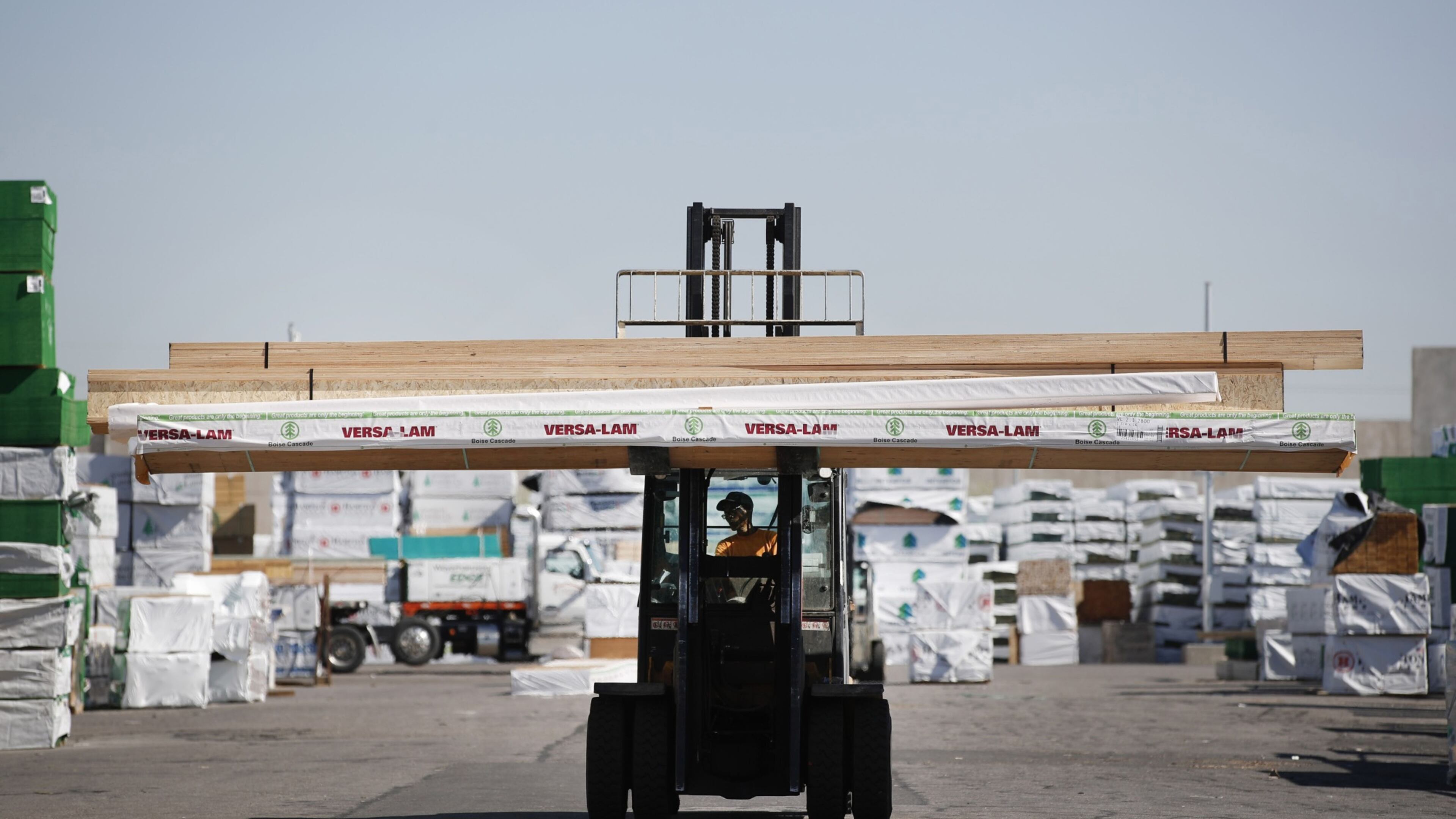Lumber prices see biggest drop in history after historic highs

After a year that saw record-high lumber prices and shortages nationwide, the price for lumber finally began to drop last week.
Lumber futures posted their biggest drop Tuesday at $1,009.90 per thousand board feet, down 41% from the record of $1,711.20 in May, The Wall Street Journal reported. Before the COVID-19 pandemic, it traded in the range of $300 to $500 per thousand board feet.
I find price discovery in the futures market fascinating. Lumber has been fun to watch. pic.twitter.com/Up5V8XhwUN
— John (@MrJohnHooper) June 11, 2021
The price of lumber was pushed to an “unsustainable price point, and now we’re seeing a little bit of pushback from the marketplace,” Kyle Little, Sherwood Lumber’s COO, said Tuesday on “Mornings with Maria.”
“When you have over a 400% price move in about a 15-month period of time, the volatility involved with that will lead to price adjustments like we are experiencing right now,” Little said.
The increase of lumber was so high, it added about $36,000 to the price of a new home, according to the National Association of Home Builders.
“There has really been a curtailing of demand, based on the level of pricing,” David Flanagan, president of Viking Lumber, told the Bangor Daily News. “People have just said, ‘Nope, I’m not gonna do it at that price.’ And that’s started to show in the marketplace, the fact that people are just not willing to pay that much.”
With U.S. home building continuing to rise, lumber prices will likely remain above $500 per thousand board feet for the next five to eight years, Scott Reaves, forest operations director at Domain Timber Advisors, told Bloomberg.
I hope you are not taking a second mortgage for lumber costs on that
— Paul "Slowcooker" E - He/Him (@paulehr) June 13, 2021
“We’re at a new normal. We’re going to see this sustained level of housing demand and a new normal for a pricing floor in lumber,” Reaves said.


